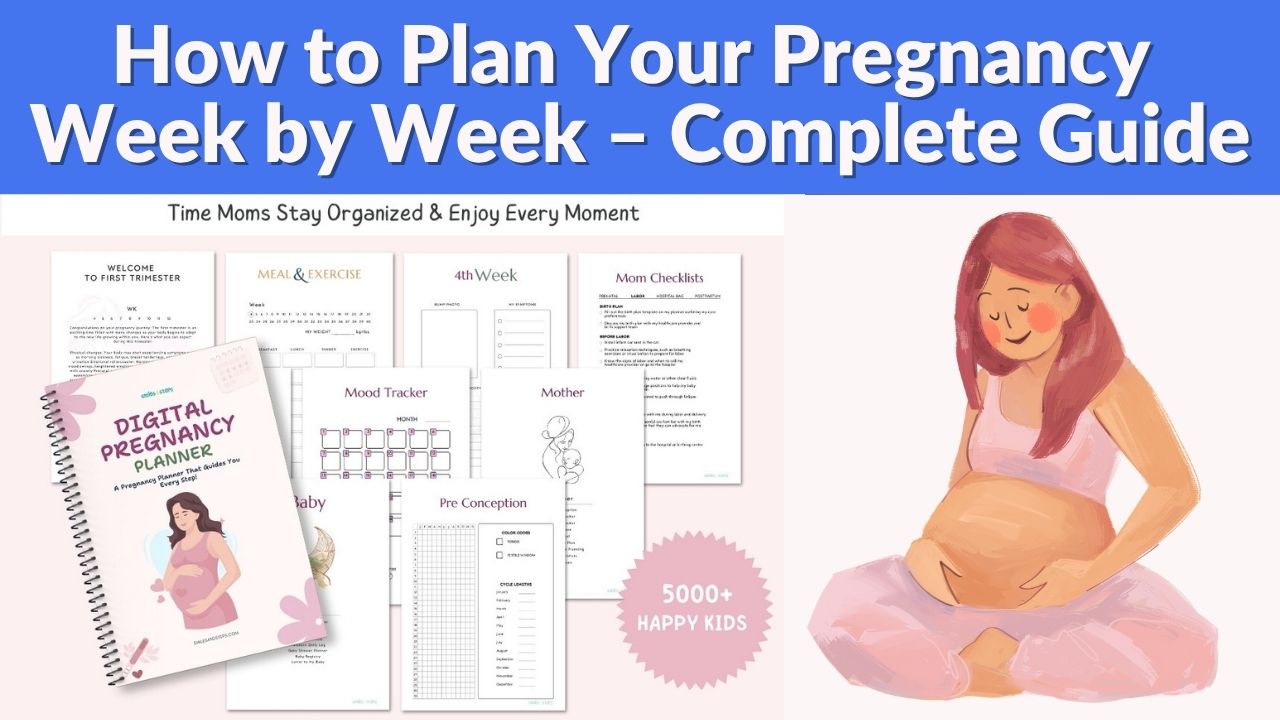Pregnancy is a life-changing journey that unfolds week by week. Each week brings new physical changes, emotional shifts, and important medical milestones. Without a clear plan, it’s easy to feel overwhelmed. A structured weekly approach can transform confusion into clarity, helping you feel confident, prepared, and deeply connected to your growing baby.
Below are five essential areas where weekly pregnancy planning truly matters in 2025 and beyond.
1. Understanding the First Trimester: Weeks 1–12
The first trimester sets the tone for your entire pregnancy. During these early weeks, many women experience morning sickness, fatigue, and mood swings. Weekly planning during this time is especially important for establishing prenatal care routines. This includes scheduling your first OB-GYN visit, starting prenatal vitamins, and learning what foods and medications to avoid.
As each week progresses, your baby goes from a microscopic embryo to a recognizable fetus. Keeping track of weekly changes in symptoms, emotions, and doctor visits ensures you’re on top of both your health and your baby’s development. A planner can help you log nausea triggers, energy levels, and even early heartbeat milestones as they’re detected.
2. Nutritional Planning and Exercise Adjustments
Week-by-week planning isn’t just for doctor visits—it’s also essential for your diet and physical activity. Your nutritional needs change gradually across all trimesters, especially as your baby’s brain and body develop. For example, weeks 4–8 may require increased folic acid, while weeks 20–28 may call for more iron to support rapid growth.
Planning your meals weekly allows you to ensure variety and balance, while tracking any food aversions or cravings. Similarly, mild prenatal exercises like walking or yoga should be scheduled based on how you feel week to week. Some weeks, you may have high energy; others may require complete rest. A flexible but structured plan helps you adapt safely.
3. Medical Appointments and Screenings Timeline
Each pregnancy week comes with specific medical milestones. Blood tests, ultrasounds, and screenings must be done at specific intervals, and missing them can delay critical diagnoses. Between weeks 10 and 13, for instance, many women undergo a nuchal translucency scan, which screens for genetic issues. Weeks 24–28 often include gestational diabetes testing.
By planning these checkups ahead of time on a weekly basis, you’ll never miss a vital step. Knowing what’s coming helps reduce anxiety and prepares you for each doctor visit. A reliable planner will have these medical checkpoints pre-marked, helping you focus on your health instead of just paperwork and scheduling.
4. Emotional Tracking and Mental Preparation
Pregnancy affects your mind just as much as your body. As hormones shift, it’s common to feel a rollercoaster of emotions. Planning week by week allows you to notice patterns—whether you’re feeling unusually anxious in week 14 or overly emotional around week 30. This awareness can help you communicate better with your partner and your doctor.
By tracking your emotional well-being weekly, you can identify red flags like prenatal depression or excessive worry. Writing down your feelings helps you process them, and having a plan gives you a sense of stability and control. Mental preparation is as important as physical readiness for birth, and week-by-week awareness plays a key role in both.
5. Preparing for Labor and Postpartum: Weeks 32–40
The final weeks of pregnancy are about more than just waiting. Each week from 32 onward should be used to finalize your birth plan, prepare your hospital bag, and begin light nesting activities like setting up the nursery. This is also the time to schedule hospital tours, confirm your support system, and discuss delivery preferences with your doctor.
Many moms underestimate how important the final weeks are in setting the tone for postpartum recovery. Use this time to plan meals for after birth, organize newborn care tasks, and prepare for emotional changes. A solid week-by-week plan ensures you’re not rushing last minute, and instead entering labor feeling grounded and ready.
Final Thoughts: Plan Smart, Stay Confident
Pregnancy doesn’t have to be chaotic. With a thoughtful week-by-week plan, you’ll gain more than just structure—you’ll gain peace of mind. Whether it’s your first baby or your third, a weekly planner becomes a reliable partner in your motherhood journey.
Want a powerful tool to help with all of the above?
Get the Pregnancy Planner
